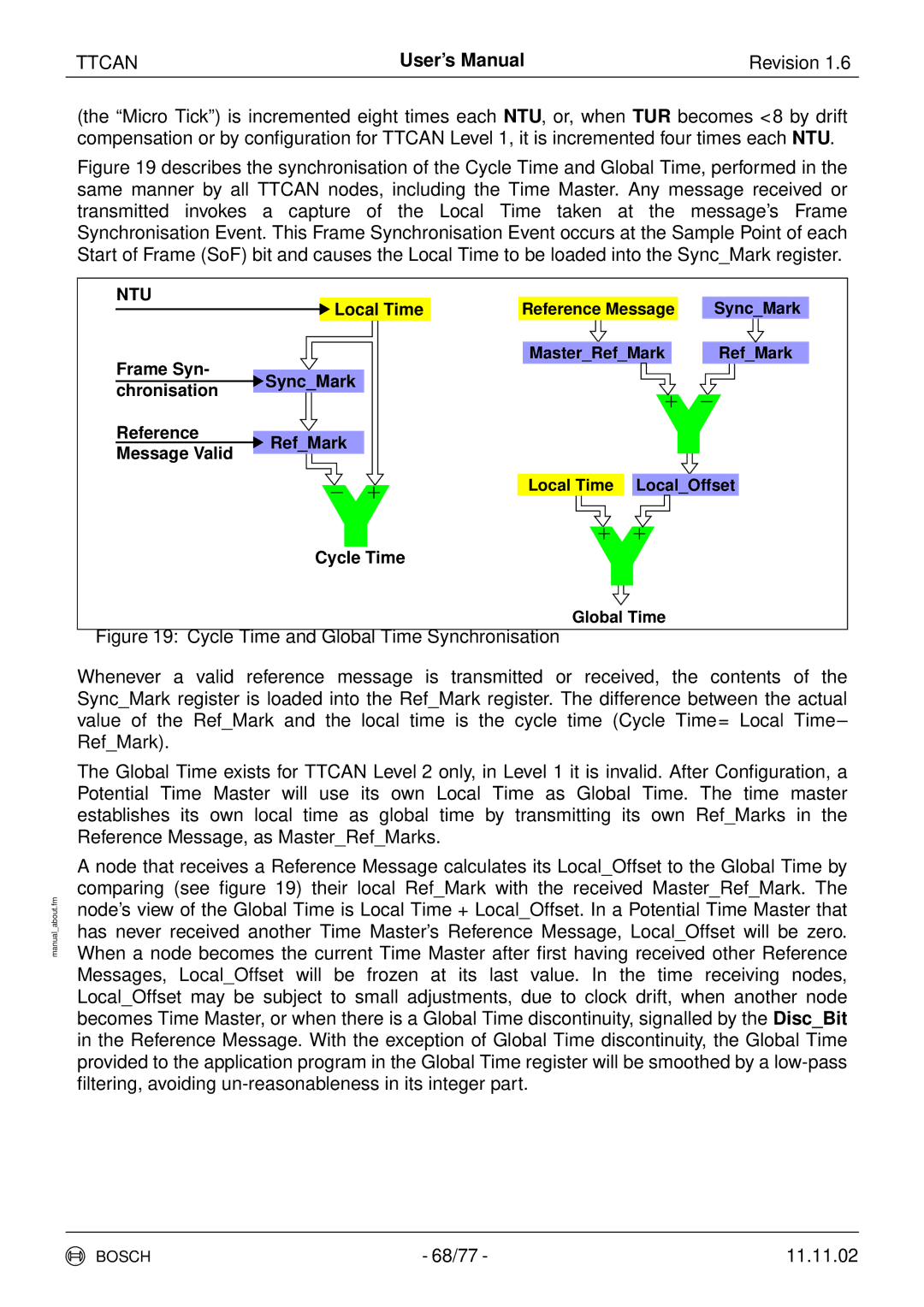
TTCAN | User’s Manual | Revision 1.6 |
manual_about.fm
(the “Micro Tick”) is incremented eight times each NTU, or, when TUR becomes <8 by drift compensation or by configuration for TTCAN Level 1, it is incremented four times each NTU.
Figure 19 describes the synchronisation of the Cycle Time and Global Time, performed in the same manner by all TTCAN nodes, including the Time Master. Any message received or transmitted invokes a capture of the Local Time taken at the message’s Frame Synchronisation Event. This Frame Synchronisation Event occurs at the Sample Point of each Start of Frame (SoF) bit and causes the Local Time to be loaded into the Sync_Mark register.
NTU | Local Time | Reference Message | Sync_Mark | |
| ||||
Frame Syn- |
| Master_Ref_Mark | Ref_Mark | |
Sync_Mark |
|
|
| |
chronisation |
|
|
| |
|
|
|
| |
Reference | Ref_Mark |
|
|
|
Message Valid |
|
|
| |
|
|
|
| |
|
| Local Time | Local_Offset | |
| Cycle Time |
|
|
|
|
| Global Time |
| |
Figure 19: Cycle Time and Global Time Synchronisation |
|
| ||
Whenever a valid reference message is transmitted or received, the contents of the Sync_Mark register is loaded into the Ref_Mark register. The difference between the actual value of the Ref_Mark and the local time is the cycle time (Cycle Time= Local Time– Ref_Mark).
The Global Time exists for TTCAN Level 2 only, in Level 1 it is invalid. After Configuration, a Potential Time Master will use its own Local Time as Global Time. The time master establishes its own local time as global time by transmitting its own Ref_Marks in the Reference Message, as Master_Ref_Marks.
A node that receives a Reference Message calculates its Local_Offset to the Global Time by comparing (see figure 19) their local Ref_Mark with the received Master_Ref_Mark. The node’s view of the Global Time is Local Time + Local_Offset. In a Potential Time Master that has never received another Time Master’s Reference Message, Local_Offset will be zero. When a node becomes the current Time Master after first having received other Reference Messages, Local_Offset will be frozen at its last value. In the time receiving nodes, Local_Offset may be subject to small adjustments, due to clock drift, when another node becomes Time Master, or when there is a Global Time discontinuity, signalled by the Disc_Bit in the Reference Message. With the exception of Global Time discontinuity, the Global Time provided to the application program in the Global Time register will be smoothed by a
BOSCH | - 68/77 - | 11.11.02 |
